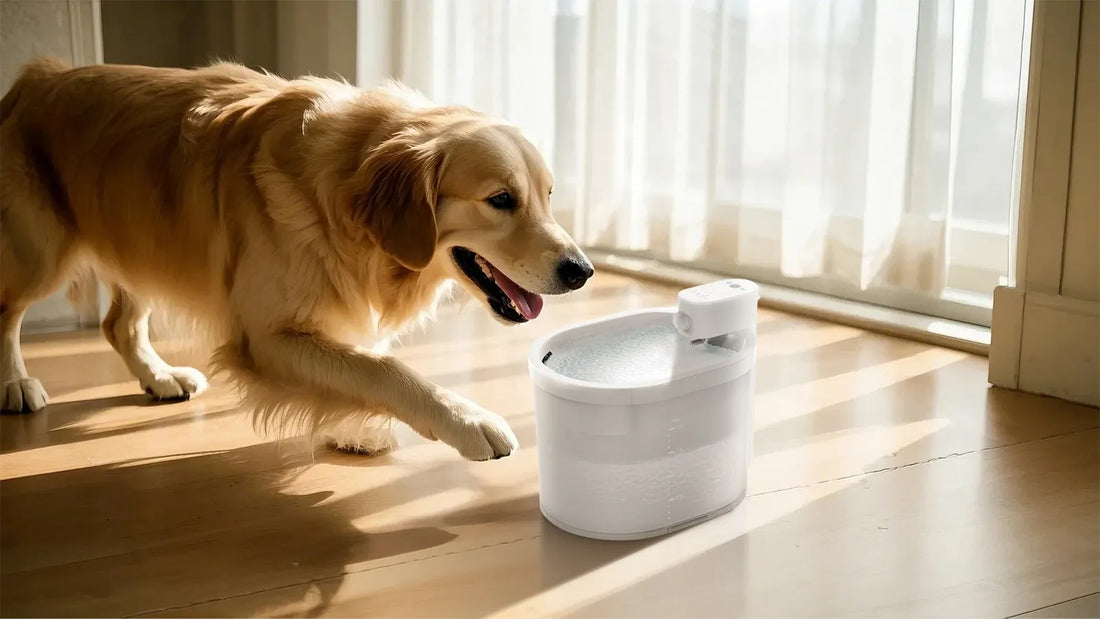It’s a common sight for dog owners: your furry friend returns from a walk, plops down on the floor, and starts panting heavily. While panting is a normal behavior for dogs, heavy panting after a walk can sometimes raise concerns. Is it just a sign of exertion, or could it indicate something more serious? Understanding the reasons behind your dog’s heavy panting and knowing when to take action can help you ensure their well-being.
Why Do Dogs Pant After a Walk?
Panting is a natural way for dogs to regulate their body temperature. Unlike humans, dogs don’t sweat through their skin. Instead, they rely on panting to cool down. After a walk, especially in warm weather or during vigorous exercise, your dog may pant heavily to release excess heat. This is typically normal and nothing to worry about.
However, heavy panting can also be influenced by other factors, such as the intensity of the walk, your dog’s fitness level, and environmental conditions. For example, a dog that isn’t used to long walks or strenuous activity may pant more heavily than a well-conditioned dog. Similarly, walking in hot or humid weather can increase the likelihood of heavy panting.
When Should You Be Concerned?
While heavy panting after a walk is often harmless, there are certain signs that may indicate a problem. If your dog’s panting is excessive, prolonged, or accompanied by other symptoms, it’s important to take note. Here are some red flags to watch for:
- Panting that doesn’t subside after a reasonable rest period
- Excessive drooling or foaming at the mouth
- Lethargy or weakness
- Disorientation or confusion
- Gums that appear pale, blue, or bright red
These symptoms could be signs of heatstroke, dehydration, or an underlying health issue. If you notice any of these signs, it’s crucial to seek veterinary attention immediately.
Common Causes of Heavy Panting After a Walk
There are several reasons why your dog might pant heavily after a walk. Some of the most common causes include:
1. Overexertion
If your dog isn’t used to long or intense walks, they may pant heavily as a result of overexertion. This is especially true for older dogs or those with lower fitness levels. Gradually increasing the duration and intensity of walks can help your dog build stamina and reduce heavy panting.
2. Heat and Humidity
Walking in hot or humid weather can cause your dog to overheat, leading to heavy panting. Dogs are more susceptible to heatstroke than humans, so it’s important to avoid walking them during the hottest parts of the day. Always provide plenty of water and take breaks in shaded areas.
3. Anxiety or Stress
Some dogs may pant heavily due to anxiety or stress during walks. This could be caused by unfamiliar environments, loud noises, or encounters with other animals. If your dog seems anxious, try to identify and address the source of their stress.
4. Underlying Health Issues
Heavy panting can also be a symptom of underlying health problems, such as respiratory issues, heart disease, or obesity. If your dog’s panting seems excessive or out of the ordinary, consult your veterinarian to rule out any medical conditions.
How to Help Your Dog Recover After a Walk
If your dog is panting heavily after a walk, there are several steps you can take to help them recover and stay comfortable:
- Provide plenty of fresh water to keep them hydrated.
- Allow them to rest in a cool, shaded area.
- Use a damp towel to gently cool their body, especially their paws and belly.
- Avoid walking them during the hottest parts of the day.
- Monitor their panting and watch for any concerning symptoms.
By taking these precautions, you can help your dog recover quickly and reduce the risk of overheating or dehydration.
Preventing Heavy Panting in the Future
To minimize heavy panting after walks, consider the following tips:
- Gradually increase the duration and intensity of walks to build your dog’s fitness.
- Walk your dog during cooler times of the day, such as early morning or late evening.
- Choose shaded routes and avoid hot pavement, which can burn your dog’s paws.
- Bring water and a portable bowl on walks to keep your dog hydrated.
- Be mindful of your dog’s breed and age, as some dogs are more prone to overheating than others.
By taking these steps, you can ensure that your dog enjoys their walks without overexerting themselves.
When to Consult a Veterinarian
If your dog’s heavy panting persists or is accompanied by other symptoms, it’s important to consult a veterinarian. They can perform a thorough examination to determine the underlying cause and recommend appropriate treatment. Early intervention can prevent serious health issues and ensure your dog’s long-term well-being.
Remember, your dog’s health and comfort should always be a top priority. By understanding the reasons behind heavy panting and taking proactive steps, you can help your furry friend stay happy and healthy after every walk.
Heavy panting after a walk doesn’t have to be a cause for alarm, but it’s essential to stay vigilant and take action when needed. With the right care and attention, you can ensure that your dog enjoys their walks safely and comfortably. Keep an eye on their behavior, provide plenty of water, and consult your veterinarian if you have any concerns. Your dog’s well-being is worth every effort!













